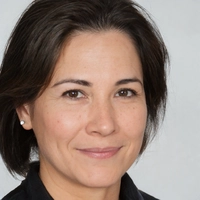
What is the difference between health and primary care?
Understanding Health and Primary Care
Before diving into the differences between health and primary care, it's crucial to have a clear understanding of these two concepts. Health refers to a person's overall well-being, encompassing physical, mental, and social aspects. On the other hand, primary care is the first point of contact in the healthcare system, providing essential services and playing a vital role in maintaining and improving health. In this section, we will explore the fundamental differences between these two concepts and their implications on our lives.
The Role of Primary Care in Health Maintenance
One of the significant differences between health and primary care is their primary focus. While health encompasses a broader spectrum of well-being, primary care is focused on providing medical care to individuals in the community. Primary care practitioners, such as family doctors, pediatricians, and internal medicine specialists, play a vital role in maintaining and improving health by offering preventive services, diagnosing and treating illnesses, and managing chronic conditions. Through these services, primary care acts as a foundation for maintaining overall health and well-being.
Preventive Care: A Key Component of Primary Care
Preventive care is a crucial aspect of primary care that sets it apart from the broader concept of health. Preventive care involves taking proactive measures to prevent illnesses and detect potential health issues before they become severe. This includes routine check-ups, immunizations, screenings, and health education. By addressing potential health concerns early on, preventive care helps individuals maintain a higher level of overall health and well-being, highlighting the importance of primary care in our healthcare system.
Accessibility and Continuity of Primary Care
Another essential aspect that differentiates primary care from health is the accessibility and continuity of care. Primary care providers are often the first point of contact for individuals seeking medical attention, making them more accessible than specialized care providers. Moreover, primary care practitioners often establish long-term relationships with their patients, allowing them to provide continuous and personalized care. This continuity of care is essential for addressing chronic health conditions and ensuring that patients receive timely and appropriate care, ultimately contributing to better health outcomes.
Primary Care as a Gateway to Specialized Care
While primary care focuses on providing essential healthcare services, it also serves as a gateway to specialized care. Primary care practitioners play a critical role in identifying patients who require specialized medical attention, such as those with complex or severe health conditions. By referring patients to appropriate specialists and coordinating care, primary care practitioners help ensure that individuals receive the right care at the right time, promoting better health outcomes and overall well-being.
The Impact of Primary Care on Health Outcomes and Healthcare Costs
Lastly, it's essential to consider the impact of primary care on health outcomes and healthcare costs. Research has shown that countries with strong primary care systems have better health outcomes, including lower mortality rates and higher life expectancy. Additionally, primary care can help reduce healthcare costs by emphasizing preventive care, early detection, and effective management of chronic conditions. By providing accessible and continuous care, primary care practitioners play a crucial role in promoting overall health and well-being, further highlighting the difference between health and primary care.
In conclusion, while health and primary care are closely related concepts, they have distinct differences that set them apart. Health is a broader term that encompasses various aspects of well-being, while primary care focuses on providing essential healthcare services to maintain and improve health. By understanding these differences, we can appreciate the vital role primary care plays in our lives and the healthcare system as a whole.






